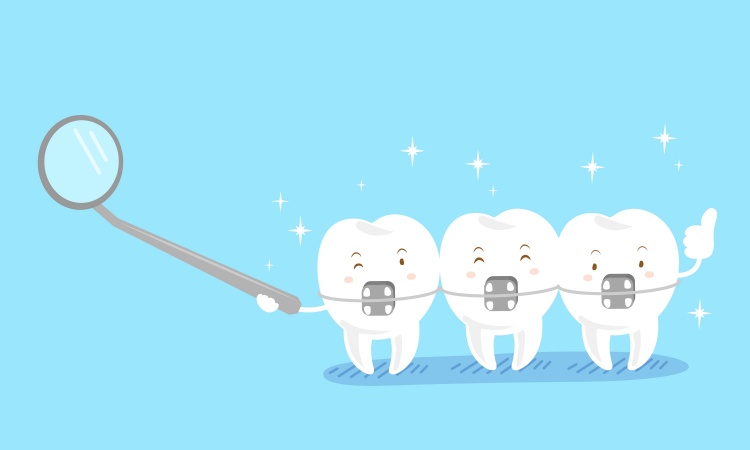Does Your Health Insurance Cover Braces?
Does Your Health Insurance Cover Braces?

When you think about braces, you probably imagine teenagers straightening crooked teeth. However, orthodontic treatment also addresses functional issues such as misaligned jaws, chewing difficulties, and speech problems. Given these health aspects, it’s fair to ask: Does health insurance cover dental braces?
The answer is not always straightforward. Most standard health insurance policies in India do not cover dental treatments, as they are often classified under cosmetic procedures. But there are exceptions, and some plans offer dental riders or special benefits that may include orthodontic procedures.
Why Orthodontic Treatment Is About More Than Just Looks
Braces do more than give you a confident smile. Orthodontic care can:
• Correct bite problems, which can reduce wear on teeth.
• Improve oral hygiene by making teeth easier to clean.
• Help with speech issues caused by misaligned teeth.
• Prevent jaw pain and other complications due to misalignment.
Untreated orthodontic issues can lead to long-term dental and health problems. That’s why, for some, braces are more of a medical necessity than a cosmetic choice.
Does Medical Insurance Typically Cover Braces?
Standard health insurance usually does not include dental treatments such as braces. However, there are scenarios where exceptions apply:
• If braces are medically necessary after an accident or jaw surgery.
• If a policy has an additional dental rider.
• Certain comprehensive plans may cover accidental damage to teeth, including follow-up orthodontic care.
Always read your policy’s wording carefully and speak with your insurer to understand exactly what is and isn’t covered. Policies vary widely and exclusions are common.
Types of Insurance Plans That May Cover Braces
While standard plans rarely cover braces, here are a few options worth exploring:
1. Dental Riders
Some insurers offer dental riders that can be added to your main health insurance plan for an extra premium. These riders sometimes include partial coverage for orthodontic treatments.
2. Accident Coverage
If braces are needed due to an accident, treatments may fall under accidental injury benefits in your health insurance policy.
3. Employee Benefits
Some employers offer group health insurance plans that include dental benefits for employees and their families. These benefits can sometimes cover braces, at least partially.
Before adding a rider or selecting a plan, always compare costs and carefully read the terms to avoid any surprises later.
What to Consider Before Getting Braces
Here are key factors to think about before you start treatment:
• Cost:
Braces typically cost between ₹30,000 to ₹1,00,000, depending on the type (metal, ceramic, invisible aligners).
• Treatment Length:
Orthodontic treatment often takes 1-3 years and requires regular follow-ups.
• Maintenance:
Braces require good oral hygiene and may necessitate dietary adjustments.
• Insurance Cover:
Check if your health insurance has any dental component or rider.
How to Check If Your Insurance Covers Braces
Finding out if your plan covers braces is easier. Here’s what you can do:
1. Read Your Policy Document
Go through your policy wordings and check for dental or orthodontic coverage. Look for sections on exclusions, too.
2. Speak to Customer Support
Contact your insurance provider directly. They can explain if braces are covered under accidental injury or any rider.
3. Ask Your Dentist
Orthodontists often have experience with insurance claims and can help you understand what documents are needed for a claim.
4. Review Group Insurance
If you’re covered by your employer’s plan, check with your HR department. Group policies may offer extra benefits.
Conclusion
Braces can boost your confidence and protect your long-term dental health. But treatment costs can add up fast. So, if you’re wondering, Does health insurance cover dental braces, the answer is usually ‘no’, but exceptions exist. To avoid unexpected bills, check your policy and consider adding dental cover if available.
Disclaimer: The above information is for illustrative purposes only. For more details, please refer to the policy wordings and prospectus before concluding the sales.
RELATED ARTICLES
Work from home challenges and how to successfully negotiate them
Protect Your Smile and Wallet with Dental Health Insurance
TPA In Health Insurance: How to Choose the Best One
Nominate A Health Insurance Beneficiary: Secure Your Loved Ones










 Health Insurance
Health Insurance  Travel Insurance
Travel Insurance  Car Insurance
Car Insurance  Cyber Insurance
Cyber Insurance  Critical Illness Insurance
Critical Illness Insurance
 Pet Insurance
Pet Insurance
 Bike/Two Wheeler Insurance
Bike/Two Wheeler Insurance  Home Insurance
Home Insurance  Third Party Vehicle Ins.
Third Party Vehicle Ins.  Tractor Insurance
Tractor Insurance  Goods Carrying Vehicle Ins.
Goods Carrying Vehicle Ins.  Passenger Carrying Vehicle Ins.
Passenger Carrying Vehicle Ins.  Compulsory Personal Accident Insurance
Compulsory Personal Accident Insurance  Travel Insurance
Travel Insurance  Rural
Rural 











